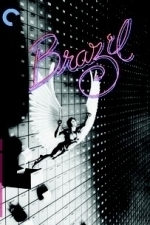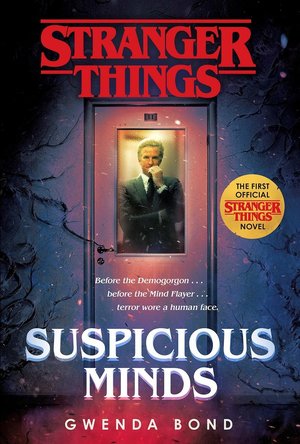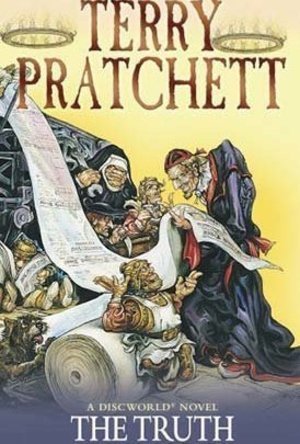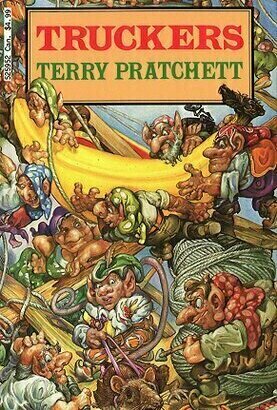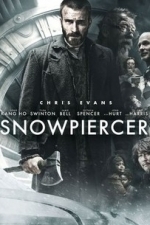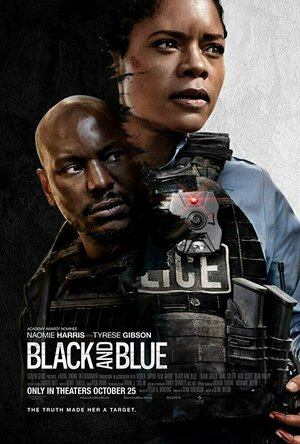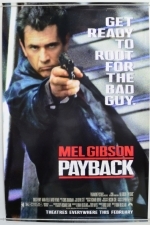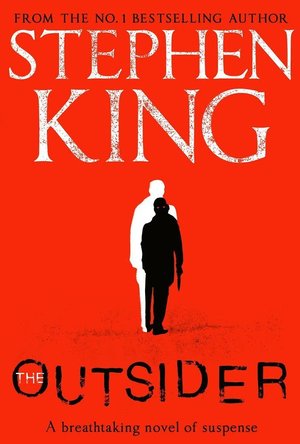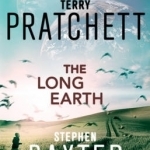Search
Search results
Christopher Hobbs recommended Brazil (1985) in Movies (curated)
Whatchareadin (174 KP) rated The Buffalo Soldier in Books
May 10, 2018
Chris Bohjalian has done it again. This is the second book of his that I have read. His books seem to really tug at the heartstrings and make you think, "What would I do in this situation?" It has been two years since Terry and Laura Sheldon have lost their twin girls in a horrendous flood. They both are different people since that instance, but still are trying to get their lives back in order. When Alfred is brought into their lives, you can start to see a change in them both. Laura for the better, but Terry not so much. Not only is Alfred not theirs(he's a foster kid), but he's also black. How will their friends and family adjust to their new child? And how will they? How will Alfred, he's been to so many houses in his past, will this finally be the place he gets to stay? With so many obstacles to overcome, will this family be able to stay together and mend the broken pieces of their lives?
Hadley (567 KP) rated Stranger Things: Suspicious Minds in Books
Jun 10, 2019
The first novel adapted from the Netflix series hit 'Stranger Things' is an astonishing work of art. Viewers of the show may be familiar with Eleven's mother, Terry Ives, which this book surrounds. Along for the ride are a few important characters that weren't mentioned in the series: Alice, Gloria and Ken - a self proclaimed psychic - all of which meet because they signed up for a human experiment at Hawkins National Laboratory, where each are given doses of LSD every week. This quickly tells readers that the book is not recommended for anyone under the age of 14.
Although the series has more than one book, and no end in sight, Bond was only chosen to do this novel. 'Suspicious Minds' is categorized under Young Adult books, but with the heavy Vietnam content, it's not considered that many young adults today can actually relate with this story or even understand the devastating effects of a looming draft hanging over the heads of young men throughout America in the 1960's. But Bond does a wonderful job in relating the emotional state of this era through our main character, Terry. Another subject that Bond does a fantastic job of explaining in 'Suspicious Minds' is the taboo of being a pregnant, unwed mother in this era, something that seems to be making headlines again in the States nearly 60 years later.
Bond shows us a young Dr. Martin Brenner, with neatly styled brown hair and an almost unlined face, as well as a more lively Terry Ives (which only season 2 has shown a very short flashback sequence of Terry being mobile before her dreaded consequence from being associated with the human experiments). We find out that the reason Terry volunteered for the experiment is due to her father's service in WWII, and wanting to make the world a better place. Bond brings in the other important characters, who also volunteered for the experiments, quickly bonding the four as friends for life.
As far as characters go, these four are written very well. Although Terry is the main character of 'Suspicious Minds,' we get to see from the viewpoints of all people, including Brenner. Bond gives the reader a short background on what LSD is and where it came from when the time comes for the experiments to begin. Brenner doesn't really explain why he gives LSD to the volunteers, but only that it is part of a secret experiment. Even when Terry is placed in a sensory deprivation tank, he doesn't reveal anything to her, and Bond does a great job of keeping the characters enough in the grey area of knowing that it's believable. Even at one point, when Terry begins to suspect something strange from the experiments, she keeps the belief that whatever is going on at Hawkins Laboratory must be important: " 'But you can't see it's important?' Terry leaned in close, and they kept their voices down as other students walked past. 'They just called up the school and told them to give me Thursdays off and I'm getting credit for it? They're tying our grades to doing this. And no one asked any questions. They just agreed. I have to keep going.' " Bond eloquently keeps the mystery going.
This mystery is even interesting to those who know what happens in the end. In 'Stranger Things,' Terry is introduced as a comatose woman in a rocking chair- who happens to be Eleven's mother. We have never met Gloria, Alice or Ken. The three become very close to Terry, and they all somehow escape from Brenner's grasp, but they also end up joining in Terry's pursuit of getting Eleven/Jane back to her mother. Fans of the show might be left asking what happened to these three enjoyable characters? I haven't seen any plans for a part two of this story, so we may be left not knowing what happened or if the three are even still alive today (in the Stranger Things' era). Even more enjoyable is the random use of J.R.R. Tolkien's 'The Lord of the Rings,' where in one scene, Alice and Terry decide to name their small group 'The Fellowship of the Lab.' Any veteran reader will be happy to see a classic brought up in a newer book of today.
And also of interest, fans will recognize a little girl who is frequent throughout the story: Eight a.k.a. Kali. We never get to see through Kali's perspective, but the reader does get to see the multitude of her abilities. For instance, Kali is able to scare personnel in the lab by causing the hallucination of tidal waves inside the building, only to stop when Brenner (or Papa to her) gives her her favorite sweet: Hostess cakes. Other than that, Kali is like any child; she throws tantrums and rebels from her Papa, sometimes to the laughter of the reader.
One point, Terry even meets with Kali in her LSD induced state: " Terry shook her head. 'There can be. He's just a man. He can't know everything.' She paused. 'Does he hurt you? Papa?' Kali frowned, but she didn't answer. 'If he does... I can help you.' Terry had to make her understand. The little girl shook her head. 'I don't think so. I might be able to help you, though.' A field of yellow sunflowers grew up around them. A rainbow arcing over the golden tops." Terry, understandably, begins to scheme about how they can help Kali to escape the lab.
Bond does a great job of transitioning between Terry's point of view to the other characters' viewpoints. We get a young woman named Gloria, who has a secret obsession with comic books (especially X-Men). A hippie-looking man named Ken, who claims he is psychic, but just happens to have a lot of hunches that come true. And last, but not least, another young woman named Alice, who shows up in grease covered overalls and curly black hair, explaining that she works for her uncle's garage and that she loves machines. These three are delightful to read about, and the story would be boring without them.
This book was the perfect novel to answer questions fans may have had about Eleven's mother. Bond writes smoothly and easily enough that you may find yourself wanting to read just one more page before setting the book down for the evening. She drags you into the world of the 1960's and helps young readers to feel the emotional time that it was for women like Terry. But with only a few inconsistencies here and there, 'Suspicious Minds' leaves us wanting more. If you are a fan of 'Stranger Things,' I say that this is a must-read! Highly recommend!
Although the series has more than one book, and no end in sight, Bond was only chosen to do this novel. 'Suspicious Minds' is categorized under Young Adult books, but with the heavy Vietnam content, it's not considered that many young adults today can actually relate with this story or even understand the devastating effects of a looming draft hanging over the heads of young men throughout America in the 1960's. But Bond does a wonderful job in relating the emotional state of this era through our main character, Terry. Another subject that Bond does a fantastic job of explaining in 'Suspicious Minds' is the taboo of being a pregnant, unwed mother in this era, something that seems to be making headlines again in the States nearly 60 years later.
Bond shows us a young Dr. Martin Brenner, with neatly styled brown hair and an almost unlined face, as well as a more lively Terry Ives (which only season 2 has shown a very short flashback sequence of Terry being mobile before her dreaded consequence from being associated with the human experiments). We find out that the reason Terry volunteered for the experiment is due to her father's service in WWII, and wanting to make the world a better place. Bond brings in the other important characters, who also volunteered for the experiments, quickly bonding the four as friends for life.
As far as characters go, these four are written very well. Although Terry is the main character of 'Suspicious Minds,' we get to see from the viewpoints of all people, including Brenner. Bond gives the reader a short background on what LSD is and where it came from when the time comes for the experiments to begin. Brenner doesn't really explain why he gives LSD to the volunteers, but only that it is part of a secret experiment. Even when Terry is placed in a sensory deprivation tank, he doesn't reveal anything to her, and Bond does a great job of keeping the characters enough in the grey area of knowing that it's believable. Even at one point, when Terry begins to suspect something strange from the experiments, she keeps the belief that whatever is going on at Hawkins Laboratory must be important: " 'But you can't see it's important?' Terry leaned in close, and they kept their voices down as other students walked past. 'They just called up the school and told them to give me Thursdays off and I'm getting credit for it? They're tying our grades to doing this. And no one asked any questions. They just agreed. I have to keep going.' " Bond eloquently keeps the mystery going.
This mystery is even interesting to those who know what happens in the end. In 'Stranger Things,' Terry is introduced as a comatose woman in a rocking chair- who happens to be Eleven's mother. We have never met Gloria, Alice or Ken. The three become very close to Terry, and they all somehow escape from Brenner's grasp, but they also end up joining in Terry's pursuit of getting Eleven/Jane back to her mother. Fans of the show might be left asking what happened to these three enjoyable characters? I haven't seen any plans for a part two of this story, so we may be left not knowing what happened or if the three are even still alive today (in the Stranger Things' era). Even more enjoyable is the random use of J.R.R. Tolkien's 'The Lord of the Rings,' where in one scene, Alice and Terry decide to name their small group 'The Fellowship of the Lab.' Any veteran reader will be happy to see a classic brought up in a newer book of today.
And also of interest, fans will recognize a little girl who is frequent throughout the story: Eight a.k.a. Kali. We never get to see through Kali's perspective, but the reader does get to see the multitude of her abilities. For instance, Kali is able to scare personnel in the lab by causing the hallucination of tidal waves inside the building, only to stop when Brenner (or Papa to her) gives her her favorite sweet: Hostess cakes. Other than that, Kali is like any child; she throws tantrums and rebels from her Papa, sometimes to the laughter of the reader.
One point, Terry even meets with Kali in her LSD induced state: " Terry shook her head. 'There can be. He's just a man. He can't know everything.' She paused. 'Does he hurt you? Papa?' Kali frowned, but she didn't answer. 'If he does... I can help you.' Terry had to make her understand. The little girl shook her head. 'I don't think so. I might be able to help you, though.' A field of yellow sunflowers grew up around them. A rainbow arcing over the golden tops." Terry, understandably, begins to scheme about how they can help Kali to escape the lab.
Bond does a great job of transitioning between Terry's point of view to the other characters' viewpoints. We get a young woman named Gloria, who has a secret obsession with comic books (especially X-Men). A hippie-looking man named Ken, who claims he is psychic, but just happens to have a lot of hunches that come true. And last, but not least, another young woman named Alice, who shows up in grease covered overalls and curly black hair, explaining that she works for her uncle's garage and that she loves machines. These three are delightful to read about, and the story would be boring without them.
This book was the perfect novel to answer questions fans may have had about Eleven's mother. Bond writes smoothly and easily enough that you may find yourself wanting to read just one more page before setting the book down for the evening. She drags you into the world of the 1960's and helps young readers to feel the emotional time that it was for women like Terry. But with only a few inconsistencies here and there, 'Suspicious Minds' leaves us wanting more. If you are a fan of 'Stranger Things,' I say that this is a must-read! Highly recommend!
David McK (3716 KP) rated The Truth (Discworld, #25; Industrial Revolution, #2) in Books
Sep 11, 2022
The Truth shall set you Fret!
<2022 update>
Still as good as ever!
<original review below>
So, over the weekend I watched a BBC documentary about the late, great, Sir Terry Pratchett (Terry Pratchett: Back in Black) as part of which they brought up the fact that his earliest job had been as a reporter for his local paper (and saw his first corpse a few hours later, work experience meaning something in those days ...) .
Experience that shows in this novel.
The second of the so-called Industrial Revolutions (after Moving Pictures) sub-series of the Discworld novels, this is - IMO - the first to really get into the meat of said revolution, and concerns itself with Ankh-Morporks first newspaper, alongside a plot to depose the Patrician - a character, I feel, who (whilst mostly in the background in the earlier novels) comes more to the fore in this, as do the likes of Foul Ol' Ron, Coffin Henry, The Duck Man and Gaspode
Of course, it wouldn't be a Pratchett novel without a generous portion of puns running alongside the satire, parody and memorable characters (such as, say, Otto von Chriek: the vampire with a thing for flash photography ...)
Still as good as ever!
<original review below>
So, over the weekend I watched a BBC documentary about the late, great, Sir Terry Pratchett (Terry Pratchett: Back in Black) as part of which they brought up the fact that his earliest job had been as a reporter for his local paper (and saw his first corpse a few hours later, work experience meaning something in those days ...) .
Experience that shows in this novel.
The second of the so-called Industrial Revolutions (after Moving Pictures) sub-series of the Discworld novels, this is - IMO - the first to really get into the meat of said revolution, and concerns itself with Ankh-Morporks first newspaper, alongside a plot to depose the Patrician - a character, I feel, who (whilst mostly in the background in the earlier novels) comes more to the fore in this, as do the likes of Foul Ol' Ron, Coffin Henry, The Duck Man and Gaspode
Of course, it wouldn't be a Pratchett novel without a generous portion of puns running alongside the satire, parody and memorable characters (such as, say, Otto von Chriek: the vampire with a thing for flash photography ...)
David McK (3716 KP) rated Truckers (Bromeliad Trilogy, #1) in Books
Dec 13, 2020
First book of Terry Pratchett's so-called Bromeliad trilogy (consisting of this, Diggers and Wings) which, I believe, was turned into a stop motion kids TV series in the early 90s.
This follows a race of tiny people known as 'Nomes' from another planet, who have crash landed on planet Earth thousands of years ago and have now all but forgotten their own past, with some living in the fields where they are preyed upon by wildlife and others in a large department store and refusing to believe there is such a thing as 'outside' ('did not Arnold Bros., est 1905, say "everything under one roof" ...')
This belief is put to the test when Masklin - one of the outside Nomes - arrives in the store leading a ragtag group of (mostly older) Nomes, just before said store is about to be demolished, and having to hatch a plan to rescue as many Nomes as he can and get back home safely, aided by 'The Thing' (what we would term a black box computer) that has been dormant for many centuries in (again, what we would term) power-saving mode.
This follows a race of tiny people known as 'Nomes' from another planet, who have crash landed on planet Earth thousands of years ago and have now all but forgotten their own past, with some living in the fields where they are preyed upon by wildlife and others in a large department store and refusing to believe there is such a thing as 'outside' ('did not Arnold Bros., est 1905, say "everything under one roof" ...')
This belief is put to the test when Masklin - one of the outside Nomes - arrives in the store leading a ragtag group of (mostly older) Nomes, just before said store is about to be demolished, and having to hatch a plan to rescue as many Nomes as he can and get back home safely, aided by 'The Thing' (what we would term a black box computer) that has been dormant for many centuries in (again, what we would term) power-saving mode.
Tim McGuire (301 KP) rated Snowpiercer (2013) in Movies
Nov 2, 2019
All Aboard!!
Old Movie Revisited: Snowpiercer. One of those awesome apocalyptic films that makes you wanna ride a train. It reminded me of a bunch of other stuff thrown in there... Battlestar Galactica directed by Terry Gilliam on a train heading Beyond Thunderdome, there was even a scene where I felt Resident Evilish as well. (Our heroes go into a train car and encounter all these dudes with black masks on and giant axes, I instantly thought that Alice was about to come in and wipe them out.) So whats its about you ask, instead of looking it up your damn self? Its about a self-sustaining train that loops the world after global warming has sent us into another ice age. The train in seperated by class, workers way in the back, rich folk up front. And its all about a revolution to take over the train led by Captain America, Billy Elliot, and Kane from the Nostromo, to bust to the head of the train, and take over, I guess. Tilda Swinton gets to be called by her real name, because she's awesome, once again, and even Ed Harris pops up in there! "Nice." The best line is delivered by Captain America:"You know what I hate about myself? I know what people taste like. I know babies taste the best." However I can't really picture Chris Evans doing that, he looks to nice, The Capt America image has gone too far. Anyways, its a cool movie and definitely needs to be watched!! Filmbufftim on FB
Emma @ The Movies (1786 KP) rated Black and Blue (2019) in Movies
Nov 7, 2019
Having seen the film I can confidently say that this has been woefully under screened. Just one screening at my local, luckily at the sensible time of 17.20 every day. Looking at other times it's getting relegated to some late slots which is never good.
Alicia West has come back to her home town and joined the local police department after being deployed. It's not the neighbourhood she remembers, there's distrust and gangs everywhere she looks, even her old friend pretends not to know her.
Taking a double shift as a favour to her partner she goes out on patrol with Officer Brown, he's old school and not going to change his ways... they don't see eye to eye. He takes a private call and says they need to go on a call so he cn meet a CI. He orders her to stay in the car and she waits suspiciously until two shots ring out. She enters the building to investigate, body cam turned on, and comes across a group of police officers who have executed members of a local gang. Thinking on instinct they shoot at her which allows her to escape. She needs to get the footage uploaded to expose the corruption but between her and the station are corrupt police officers and a community that hates cops. Who can she trust?
I found Black And Blue to be a really enjoyable. The action was tense and the story had a consistent pace all the way through and I felt really gripped as I watched it. My only disappointment was that they gave it sickly sweet ending. It brought the story full circle for West but it was so out of place with what we'd already seen. It wasn't necessary and I feel like it detracted from the effort everything else put in.
Naomie Harris is our lead and she handles the role like a seasoned pro. She brings across the optimism of West's character and you can see the intrigue and sadness in her as she realises just how bad things have become in her neighbourhood. Harris adapts well to each scenario and at times you could feel a genuine sense of fear as she's being pursued.
Frank Grillo plays Terry Malone, the leader of our group of corrupt cops. He's a great bit of casting. Towards the end I feel like the character deviates a little from what I might have expected but the performance was so good to watch that I wasn't too bothered by that.
Another face you'll recognise is Mike Colter as Darius, Darius is the head of one of the local gangs and during the course of the story he's also hot on West's heals. He's a very dark character and Colter captures that well, there's a particularly good scene with West where we're preparing for the finale of the film and the way he changes in his split second decisions really elevates the moment.
The last actor I'll mention is Tyrese Gibson as Milo, Milo brings a much softer side to the whole story, he's not about the violence and I think that Gibson had the perfect demeanour for this role. We get some much needed respite from the heavy tension and action with his scenes. I feel like there's some back story we needed to know for him though, he needed some more explaining and that was just missing in everything we saw.
Black And Blue has a strong message about society divided by hate, I'm not the right person to tell ou its accuracy. There are stereotypes knocking around all over the place but I don't think that's necessarily a bad thing. The film focused on the corruption in the neighbourhood and that's what you see, you wouldn't be getting other walks of life so it fits the idea perfectly.
I genuinely enjoyed watching this and the film kept me on the edge of my seat, this it something I'll look forward to watching again.
What you should do
If you like crime drama then I think you'll enjoy this, there's good action and great characters.
Movie thing you wish you could take home
Some of West's kickass moves and super human will to survive.
Alicia West has come back to her home town and joined the local police department after being deployed. It's not the neighbourhood she remembers, there's distrust and gangs everywhere she looks, even her old friend pretends not to know her.
Taking a double shift as a favour to her partner she goes out on patrol with Officer Brown, he's old school and not going to change his ways... they don't see eye to eye. He takes a private call and says they need to go on a call so he cn meet a CI. He orders her to stay in the car and she waits suspiciously until two shots ring out. She enters the building to investigate, body cam turned on, and comes across a group of police officers who have executed members of a local gang. Thinking on instinct they shoot at her which allows her to escape. She needs to get the footage uploaded to expose the corruption but between her and the station are corrupt police officers and a community that hates cops. Who can she trust?
I found Black And Blue to be a really enjoyable. The action was tense and the story had a consistent pace all the way through and I felt really gripped as I watched it. My only disappointment was that they gave it sickly sweet ending. It brought the story full circle for West but it was so out of place with what we'd already seen. It wasn't necessary and I feel like it detracted from the effort everything else put in.
Naomie Harris is our lead and she handles the role like a seasoned pro. She brings across the optimism of West's character and you can see the intrigue and sadness in her as she realises just how bad things have become in her neighbourhood. Harris adapts well to each scenario and at times you could feel a genuine sense of fear as she's being pursued.
Frank Grillo plays Terry Malone, the leader of our group of corrupt cops. He's a great bit of casting. Towards the end I feel like the character deviates a little from what I might have expected but the performance was so good to watch that I wasn't too bothered by that.
Another face you'll recognise is Mike Colter as Darius, Darius is the head of one of the local gangs and during the course of the story he's also hot on West's heals. He's a very dark character and Colter captures that well, there's a particularly good scene with West where we're preparing for the finale of the film and the way he changes in his split second decisions really elevates the moment.
The last actor I'll mention is Tyrese Gibson as Milo, Milo brings a much softer side to the whole story, he's not about the violence and I think that Gibson had the perfect demeanour for this role. We get some much needed respite from the heavy tension and action with his scenes. I feel like there's some back story we needed to know for him though, he needed some more explaining and that was just missing in everything we saw.
Black And Blue has a strong message about society divided by hate, I'm not the right person to tell ou its accuracy. There are stereotypes knocking around all over the place but I don't think that's necessarily a bad thing. The film focused on the corruption in the neighbourhood and that's what you see, you wouldn't be getting other walks of life so it fits the idea perfectly.
I genuinely enjoyed watching this and the film kept me on the edge of my seat, this it something I'll look forward to watching again.
What you should do
If you like crime drama then I think you'll enjoy this, there's good action and great characters.
Movie thing you wish you could take home
Some of West's kickass moves and super human will to survive.
Matthew Krueger (10051 KP) rated Payback (1999) in Movies
Jul 15, 2020
Get Ready To Root For The Bad Guy
Payback- is a intresting revenge action thriller. Maybe its me, but i fell like this movie is boring. Its good, but some what boring, like nothing going on. Also its kinda of confusing, again it might just be me, but i fell like its confusing as well. Like i said before its good, but in the end its both boring and confusing.
The plot: Porter (Mel Gibson) is a thief betrayed by both his wife, Lynn (Deborah Kara Unger), and his partner, Val (Gregg Henry), when he is shot in the back after a heist. Slowly, Porter recovers from his wounds and begins a search for Val, intent on recovering his share of the money they stole together. With the aid of prostitute Rosie (Maria Bello), Porter captures Val but still cannot find his cash. For this, Porter will have to challenge an imposing crime syndicate called the Outfit.
Although credited as director, Brian Helgeland's cut of the film was not the theatrical version released to audiences. After the end of principal photography, Helgeland's version was deemed too dark for the mainstream public. Following a script rewrite by Terry Hayes, director Helgeland was replaced by the production designer John Myhre, who reshot 30% of the film. The intent was to make the Porter character accessible. The film's tagline became: "Get Ready to Root for the Bad Guy." A potentially controversial scene between Porter and Lynn which arguably involves spousal abuse was excised and more plot elements were added to the third act. After 10 days of reshoots, a new opening scene and voiceover track also were added, and Kris Kristofferson walked on as a new villain.
The Director's Cut version features a female Bronson, that is never seen only heard over the phone voiced by Sally Kellerman, does not include the voice-over by Porter and several Bronson-related scenes. During their scuffle (which is longer than in the theatrical version and was the main source of controversy), Porter earlier tells Lynn that his picture with Rosie was taken before they met, thereby rendering her jealousy unjustified. This version has an entirely different, ambiguous ending where Porter is seriously wounded in a train station shootout and driven off by Rosie.
A June 4, 2012, look at "movies improved by directors' cuts" by The A.V. Club described Payback: Straight Up as "a marked improvement on the unrulier original.
Mel Gibson stated in a short interview released as a DVD extra that it "would've been ideal to shoot in black and white." He noted that "people want a color image" and that the actual film used a bleach bypass process to tint the film. In addition to this, the production design used muted shades of red, brown, and grey for costumes, sets, and cars for further effect.
Like i said its a good revenge action thriller but to me its both boring and confusing. Maybe i have to watch the directors cut.
The plot: Porter (Mel Gibson) is a thief betrayed by both his wife, Lynn (Deborah Kara Unger), and his partner, Val (Gregg Henry), when he is shot in the back after a heist. Slowly, Porter recovers from his wounds and begins a search for Val, intent on recovering his share of the money they stole together. With the aid of prostitute Rosie (Maria Bello), Porter captures Val but still cannot find his cash. For this, Porter will have to challenge an imposing crime syndicate called the Outfit.
Although credited as director, Brian Helgeland's cut of the film was not the theatrical version released to audiences. After the end of principal photography, Helgeland's version was deemed too dark for the mainstream public. Following a script rewrite by Terry Hayes, director Helgeland was replaced by the production designer John Myhre, who reshot 30% of the film. The intent was to make the Porter character accessible. The film's tagline became: "Get Ready to Root for the Bad Guy." A potentially controversial scene between Porter and Lynn which arguably involves spousal abuse was excised and more plot elements were added to the third act. After 10 days of reshoots, a new opening scene and voiceover track also were added, and Kris Kristofferson walked on as a new villain.
The Director's Cut version features a female Bronson, that is never seen only heard over the phone voiced by Sally Kellerman, does not include the voice-over by Porter and several Bronson-related scenes. During their scuffle (which is longer than in the theatrical version and was the main source of controversy), Porter earlier tells Lynn that his picture with Rosie was taken before they met, thereby rendering her jealousy unjustified. This version has an entirely different, ambiguous ending where Porter is seriously wounded in a train station shootout and driven off by Rosie.
A June 4, 2012, look at "movies improved by directors' cuts" by The A.V. Club described Payback: Straight Up as "a marked improvement on the unrulier original.
Mel Gibson stated in a short interview released as a DVD extra that it "would've been ideal to shoot in black and white." He noted that "people want a color image" and that the actual film used a bleach bypass process to tint the film. In addition to this, the production design used muted shades of red, brown, and grey for costumes, sets, and cars for further effect.
Like i said its a good revenge action thriller but to me its both boring and confusing. Maybe i have to watch the directors cut.
TheDefunctDiva (304 KP) rated The Outsider in Books
Oct 7, 2018
From the Inside, Out
Contains spoilers, click to show
This book opens like an episode of “Law and Order: SVU” not suitable for primetime.
A gruesome crime, involving a child (and complete with elements of cannibalism) is committed. The alleged murderer, damned by seemingly undeniable forensic proof, is then very publicly apprehended. And then the twists and turns begin. Though eyewitnesses also put beloved schoolteacher Terry Maitland at the scene of the horrific crime, the accused was actually at a conference in another city, where he was seen on camera no less. Then comes a series of events that threatens not only the man’s quality of life but his very existence.
The novel then expands into a whodunnit with a notably creepy character, a morphing being known as the Outsider. As the true perpetrator of this and other crimes against children and their families, he is at once very human and very otherworldly.
This novel is set in the southwest, which is an unusual departure for Stephen King. Therefore, the descriptions of places were perhaps a bit less detailed and authentic than I would have liked. But having lived in San Antonio, I can say he did a pretty good job and the scenery offered certainly didn’t detract from the story.
In some respects, the monster in the Outsider echoed back to Kafka’s The Metamorphosis. The descriptions of the constantly morphing Outsider character had an eerie element. In the end, the flesh of the outsider consisted of nightmarish worms. And there was a particularly nasty substance he used to morph into his intended victims, some unidentifiable black substance which seems the stuff nightmares are made of. Appropriate, since he went around “eating sorrow” like some unhinged emo kid. Leaving entire families in his wake with his vile need to satiate himself. In his default shape, he resembled a man with “straws for eyes” which is haunting, but not nearly as terrifying as some of King’s other humanoid villains.
This book had several scenes that are now ingrained in my memory. The scene that stole the show for me was when bereaved Arlene Peterson, the victim’s mother, pours funeral leftovers on her head before ultimately succumbing to a heart attack. But the arraignment scene was definitely one that offered more action and intrigue than previously seen in the book. Chaos is one of the things King does best, and this section was remarkable. The book up to this point dragged a little, but the arraignment reigns as a pivotal point that brings many horrors sharply into focus.
I especially enjoyed the murder mystery elements of the book, as I am a sucker for a good detective story. Holly, an investigator who worked with lead detective Ralph Anderson, was my favorite character. Throughout the novel, she is depicted as smart, shrewd, and socially inept. She is also a tad obsessive-compulsive, which I related to on a personal level.
Throughout, the book seems to focus on the dual nature of man, especially in the concluding scene. It seems every man in his lifetime, by choice or fate, wears more than one face. The Outsider was a quality thriller and mystery. It is at once mysterious and devastating, and a testament to the tenacity of the human spirit.
A gruesome crime, involving a child (and complete with elements of cannibalism) is committed. The alleged murderer, damned by seemingly undeniable forensic proof, is then very publicly apprehended. And then the twists and turns begin. Though eyewitnesses also put beloved schoolteacher Terry Maitland at the scene of the horrific crime, the accused was actually at a conference in another city, where he was seen on camera no less. Then comes a series of events that threatens not only the man’s quality of life but his very existence.
The novel then expands into a whodunnit with a notably creepy character, a morphing being known as the Outsider. As the true perpetrator of this and other crimes against children and their families, he is at once very human and very otherworldly.
This novel is set in the southwest, which is an unusual departure for Stephen King. Therefore, the descriptions of places were perhaps a bit less detailed and authentic than I would have liked. But having lived in San Antonio, I can say he did a pretty good job and the scenery offered certainly didn’t detract from the story.
In some respects, the monster in the Outsider echoed back to Kafka’s The Metamorphosis. The descriptions of the constantly morphing Outsider character had an eerie element. In the end, the flesh of the outsider consisted of nightmarish worms. And there was a particularly nasty substance he used to morph into his intended victims, some unidentifiable black substance which seems the stuff nightmares are made of. Appropriate, since he went around “eating sorrow” like some unhinged emo kid. Leaving entire families in his wake with his vile need to satiate himself. In his default shape, he resembled a man with “straws for eyes” which is haunting, but not nearly as terrifying as some of King’s other humanoid villains.
This book had several scenes that are now ingrained in my memory. The scene that stole the show for me was when bereaved Arlene Peterson, the victim’s mother, pours funeral leftovers on her head before ultimately succumbing to a heart attack. But the arraignment scene was definitely one that offered more action and intrigue than previously seen in the book. Chaos is one of the things King does best, and this section was remarkable. The book up to this point dragged a little, but the arraignment reigns as a pivotal point that brings many horrors sharply into focus.
I especially enjoyed the murder mystery elements of the book, as I am a sucker for a good detective story. Holly, an investigator who worked with lead detective Ralph Anderson, was my favorite character. Throughout the novel, she is depicted as smart, shrewd, and socially inept. She is also a tad obsessive-compulsive, which I related to on a personal level.
Throughout, the book seems to focus on the dual nature of man, especially in the concluding scene. It seems every man in his lifetime, by choice or fate, wears more than one face. The Outsider was a quality thriller and mystery. It is at once mysterious and devastating, and a testament to the tenacity of the human spirit.
Jordan Binkerd (567 KP) rated The Long Earth in Books
Aug 13, 2019
Note: this review is transposted from my personal review blog, and so was originally written several years ago. I figured if I reposted it here, someone might actually read it….
I’m a huge fan of Terry Pratchett’s work, in case you hadn’t noticed. I’m slowly working my way through his Discworld novels and Good Omens: The Nice and Accurate Predictions of Agnes Nutter, Witch, cowritten with Neil Gaiman, is among my favorite books of all time.* So when I discovered The Long Earth at my local library, I was ecstatic. I’d heard good things about Stephen Baxter, but never actually read any of his material. What I found was one of the best novels I have read in a very long time.
The premise here is that there are infinite worlds parallel to ours, spread out across the vast “contingency tree” of possible Earths, and in all of the Long Earth only one iteration has developed Human life–ours. Throughout our history there have always been a few with the natural ability to “step” between worlds at will, and still others who did so unintentionally and disappeared forever, but the world at large was unaware of this phenomenon until a reclusive scientist posted the blueprint for a “stepper” device on the internet and promptly disappeared from his apartment. Suddenly, the whole of the Long Earth is opened up to humanity. Suddenly, there is no shortage of land or resources. Economies are hard hit, jobs are lost, and once again humanity’s pioneer spirit is stirred to go out into the frontier and try to make their way….
Joshua Valiente is a so-called “natural stepper,” but he is probably unique among humanity. In the stress of childbirth, his mother stepped out of her world and into a parallel forest before slipping back without him. She managed to get back and recover him pretty quickly, but nevertheless young Joshua spent the first ten minutes or so of his life completely alone in his universe. As a result, he is uniquely attuned to the Long Earth. He can step between worlds without nausea, and is keenly sensitive to the number of people around, growing intensely uncomfortable the more crowded things get. Now, fifteen years after the world learned of the Long Earth, he spends most of his time exploring where no man has gone before. Lobsang, on the other hand, is a keenly intelligent AI, who may or may not be the latest reincarnation of a Tibetan motorcycle repairman. In collaboration with the shadowy Black Corporation, Lobsang has conceived a plan to test just how far the Long Earth goes. And he wants Joshua to go with him….the resulting journey is as much an exploration of what may have been as it is a geographical one, with most worlds mirroring our own, but a few display the effects of a cosmic “toss of a coin” going the other way–for example, there’s one where the Earth was completely destroyed by an asteroid strike sometime in the distant past.
Put quite plainly, this was the best thing I’ve read in a very long time. Very original, and to my (admittedly limited) understanding very faithful to the relevant science without losing quality of narrative or character. Pratchett’s humor and sardonic narrative voice shines through quite often in the interpersonal or introspective moments as well as those detailing more plot driven points–those scenes that would, in a film, become some form of montage showing that time is passing and this is what’s happening in the meantime. As I mentioned, I’ve never read Baxter before, so it’s harder to pick out his voice from their collaboration.
Infodumping has become something of a cardinal sin in the science fiction world, but sometimes you just have to throw some information at the reader so that he doesn’t get lost. I felt that The Long Earth handled that very well. We get our first glimpse at the long earth in montage mode, a series of vignettes that don’t make sense on their own, people popping in and out of worlds without understanding themselves what is going on. This is followed by the main story, twenty years after the discovery of the Long Earth, in which the bare bones are presented via a TV interview a character is half-watching while he waits. These bare bones of the conceptual basis of the book are then fleshed out in more detail as Joshua and Lobsang and introduced and get to know each other, discussing the various theories regarding the Long Earth at length in an effort to better understand it themselves. This is interspersed with flashbacks, sometimes Joshua recalling his experiences, sometimes Lobsang telling stories of other people based on his research into early encounters with the Long Earth. In this way Pratchett and Baxter manage to convey how humanity as a whole is dealing, not just Joshua and Lobsang. If I have one complaint with this it is not always clear why or how we are being told this–you don’t discover until the end of the chapter that Lobsang is telling this to Joshua instead of the authors just throwing in a tangential bit with no direct connection. And it is all connected–every revelation, every character you visit and then abandon early in the book will come back and have significance later on.
This is perhaps not the easiest read–you do have to engage it to understand it properly–but neither is it an incomprehensible enigma. As long as you pay attention you should be fine.
CONTENT: Some R-rated language, but not nearly what you could find elsewhere. Some violence, some grisly aftermath of violence. Sexual references, but nothing explicit.
*I’m frankly a little surprised I don’t have a review of that one up here, I must have reread it last just before I started doing this. I’ll have to fix that in the near future….
Original post: https://jordanbinkerd.wordpress.com/2013/09/18/review-the-long-earth-by-terry-pratchett-stephen-baxter/
I’m a huge fan of Terry Pratchett’s work, in case you hadn’t noticed. I’m slowly working my way through his Discworld novels and Good Omens: The Nice and Accurate Predictions of Agnes Nutter, Witch, cowritten with Neil Gaiman, is among my favorite books of all time.* So when I discovered The Long Earth at my local library, I was ecstatic. I’d heard good things about Stephen Baxter, but never actually read any of his material. What I found was one of the best novels I have read in a very long time.
The premise here is that there are infinite worlds parallel to ours, spread out across the vast “contingency tree” of possible Earths, and in all of the Long Earth only one iteration has developed Human life–ours. Throughout our history there have always been a few with the natural ability to “step” between worlds at will, and still others who did so unintentionally and disappeared forever, but the world at large was unaware of this phenomenon until a reclusive scientist posted the blueprint for a “stepper” device on the internet and promptly disappeared from his apartment. Suddenly, the whole of the Long Earth is opened up to humanity. Suddenly, there is no shortage of land or resources. Economies are hard hit, jobs are lost, and once again humanity’s pioneer spirit is stirred to go out into the frontier and try to make their way….
Joshua Valiente is a so-called “natural stepper,” but he is probably unique among humanity. In the stress of childbirth, his mother stepped out of her world and into a parallel forest before slipping back without him. She managed to get back and recover him pretty quickly, but nevertheless young Joshua spent the first ten minutes or so of his life completely alone in his universe. As a result, he is uniquely attuned to the Long Earth. He can step between worlds without nausea, and is keenly sensitive to the number of people around, growing intensely uncomfortable the more crowded things get. Now, fifteen years after the world learned of the Long Earth, he spends most of his time exploring where no man has gone before. Lobsang, on the other hand, is a keenly intelligent AI, who may or may not be the latest reincarnation of a Tibetan motorcycle repairman. In collaboration with the shadowy Black Corporation, Lobsang has conceived a plan to test just how far the Long Earth goes. And he wants Joshua to go with him….the resulting journey is as much an exploration of what may have been as it is a geographical one, with most worlds mirroring our own, but a few display the effects of a cosmic “toss of a coin” going the other way–for example, there’s one where the Earth was completely destroyed by an asteroid strike sometime in the distant past.
Put quite plainly, this was the best thing I’ve read in a very long time. Very original, and to my (admittedly limited) understanding very faithful to the relevant science without losing quality of narrative or character. Pratchett’s humor and sardonic narrative voice shines through quite often in the interpersonal or introspective moments as well as those detailing more plot driven points–those scenes that would, in a film, become some form of montage showing that time is passing and this is what’s happening in the meantime. As I mentioned, I’ve never read Baxter before, so it’s harder to pick out his voice from their collaboration.
Infodumping has become something of a cardinal sin in the science fiction world, but sometimes you just have to throw some information at the reader so that he doesn’t get lost. I felt that The Long Earth handled that very well. We get our first glimpse at the long earth in montage mode, a series of vignettes that don’t make sense on their own, people popping in and out of worlds without understanding themselves what is going on. This is followed by the main story, twenty years after the discovery of the Long Earth, in which the bare bones are presented via a TV interview a character is half-watching while he waits. These bare bones of the conceptual basis of the book are then fleshed out in more detail as Joshua and Lobsang and introduced and get to know each other, discussing the various theories regarding the Long Earth at length in an effort to better understand it themselves. This is interspersed with flashbacks, sometimes Joshua recalling his experiences, sometimes Lobsang telling stories of other people based on his research into early encounters with the Long Earth. In this way Pratchett and Baxter manage to convey how humanity as a whole is dealing, not just Joshua and Lobsang. If I have one complaint with this it is not always clear why or how we are being told this–you don’t discover until the end of the chapter that Lobsang is telling this to Joshua instead of the authors just throwing in a tangential bit with no direct connection. And it is all connected–every revelation, every character you visit and then abandon early in the book will come back and have significance later on.
This is perhaps not the easiest read–you do have to engage it to understand it properly–but neither is it an incomprehensible enigma. As long as you pay attention you should be fine.
CONTENT: Some R-rated language, but not nearly what you could find elsewhere. Some violence, some grisly aftermath of violence. Sexual references, but nothing explicit.
*I’m frankly a little surprised I don’t have a review of that one up here, I must have reread it last just before I started doing this. I’ll have to fix that in the near future….
Original post: https://jordanbinkerd.wordpress.com/2013/09/18/review-the-long-earth-by-terry-pratchett-stephen-baxter/
